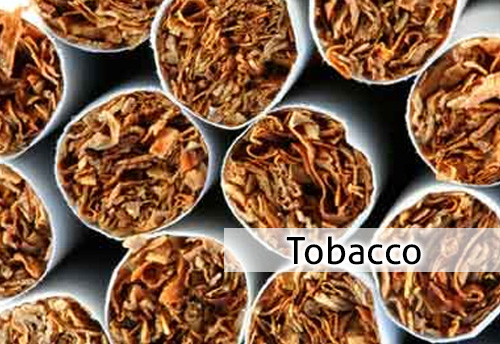Step taken to eliminate illicit trade in tobacco
Updated: May 03, 2018 11:48:20am

Step taken to eliminate illicit trade in tobacco
New Delhi, May 3 (KNN) With a view to eliminate illicit trade in tobacco, the Union Cabinet has approved acceding protocol under World Health Organization (WHO) Framework Convention on tobacco control.
This protocol to eliminate illicit trade in tobacco is a path breaking initiative in strengthening global action against tobacco and is also a new legal instrument in public health.
The protocol is applicable to both smoking and chewing or smokeless tobacco (SLT) forms as negotiated and adopted under Article 15 of the World Health Organization Framework Convention on Tobacco Control (WHO FCTC).
One of the key tobacco supply reduction strategies contained in Article 15 of WHO FCTC envisages elimination of all forms of illicit trade and tobacco products, including smuggling, illicit manufacturing and counterfeiting.
The protocol states the regulations for the parties and defines the supply chain control measures that must be adopted by the parties.
The measures includes licensing of manufacture of tobacco products and machinery for manufacturing of tobacco products, due diligence to be kept by those engaged in production, tracking and tracing regime, record keeping, security; and measures to be taken by those engaged in e-commerce, manufacturing in free-trade zones and duty free sales.
In addition, the protocol lists out offences, enforcement measures such as seizures and disposal of seized products.
Further, it calls for international cooperation in information sharing, maintaining confidentiality, training, technical assistance and cooperation in scientific and technical and technological matters.
The aim is to eliminate illicit trade in tobacco and tobacco products by strengthening regulations which in turn result in reduction in disease burden and mortality associated with tobacco use.
India, being at the forefront of tobacco control, would be able to influence the international organizations including World Custom Organization in controlling such illicit trade.
Accession to such treaty will provide actionable alternatives against such prevailing practices that are affecting public health at large.
Accordingly, the said Protocol was developed and adopted by the Conference of Parties (COP) which is the governing body of FCTC. The protocol is divided into 10 parts and contains 47 Articles. India is a party to WHO FCTC. (With PIB Inputs)












